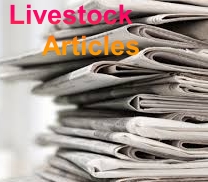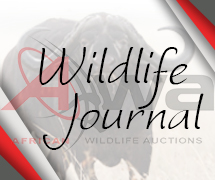Biosecurity in Poultry
Good hygiene is not only important to protect chicken from diseases, but also for food safety reasons.
Biosecurity is seen as the first line of defence in the fight against poultry diseases. It entails various measures to prevent birds from getting into contact with disease-carrying agents, which can be anything from people to other animals, feed and even farm equipment. Animal health technicians and veterinarians especially pose a high risk because they typically work with sick animals on different farms. Fortunately, they are aware of this and take measures to minimise the risk, by for example switching clothes after each farm visit.
The Human Risk
Commercial farmers reduce the risk of humans introducing diseases into their production systems by having a fence around their poultry houses. People who want to enter the production area have to sign in at a reception area to keep a record of movements in and out of the premises and to identify the source of contamination if an outbreak does occur.
The premises usually have a walk-through shower into the production area. Anybody entering the premises from the outside, be it a farmer, farm worker or veterinarian, has to leave their “outside” clothes at the entrance side of the shower. They then need to take a shower, where a towel, clean clothing and shoes are left for them on the other side of the shower. Workers usually have their own clothing, which may not be taken off the premises.
People might be required to take a shower and change clothes each time they move to a different production unit, of they might only be required to take footbaths between the units, depending on the risks. Clothing used on the inside of the premises should be washed and disinfected on the premises to ensure it is disease free.
It is important that everybody who works on the farm, understand the risk they present and work together to reduce that risk. Visitors’ movements are usually restricted to specific areas in the production facility.
Farming Equipment, Transport
Vehicles and Feed
The same procedure should be used for anything that is moved on and off the farm. All farming equipment, poultry feeding and drinking equipment, should be cleaned on the premises to prevent a build-up of bacteria and diseases spreading from one bird to another. And anything that is taken off-site, has to be disinfected before it is allowed back on site.
One of the trickiest parts here is to prevent vehicles from bringing disease onto the farm. To reduce this risk, vehicles are sprayed down and disinfected before allowed onto the farm and their movements are also usually restricted to specific areas on the farms.
Feed is another risks, as it might contain mould which can produce toxins. To reduce this risk, farmers should ensure they supply their birds with good quality feed.
Other Animals
The birds are kept in houses to limit their contact with other animals, even other chicken. Most farmers use an in-all-out system, in which birds are grouped together according to the age when they arrive on the farm and kept together during the whole of the production cycle until they leave the farm.
Buildings are thoroughly cleaned and disinfected before and after a group has finished their production cycle, to prevent diseases from spreading from one group to another. Sick birds are removed immediately and dead birds are buried to prevent the spreading of diseases.
Contact with other animals should also be avoided as far as possible. Wild birds are especially risky as they have been identified as carriers of Highly Pathogenic Avian influenza, also known as bird flu. The disease is seen as one of the biggest poultry production threats in the world and some strains of the disease may also affect humans.
Outbreaks of the disease have resulted in mass culling of poultry birds in various countries across the world. Wild bird pings or dead birds may also pollute drinking water, which in turn may cause disease outbreaks.
Rats and mice are another huge concern. In addition to stealing feed, eating and breaking eggs and killing young chicks, they carry various diseases as well as parasites, such as lice, mites and flies. Rodents should be kept out of production areas by minimising access to the building and sealing cracks and openings with a material that cannot be gnawed through by rodents, such as sheet material, hardware cloth or cement. Baiting or trapping programmes should also be used to keep populations in check.
Tips for Communal Production
Practising biosecurity in communal production systems is near impossible when birds are allowed to scavenge around the community for food. Under such conditions, poultry owners may try to creatively use any available material they can find to a barrier between their birds and other disease-carrying agents.
If this is not possible to such a barrier, poultry producers might work together to make people aware of the potential disease risks and work together to protect birds by:
Removing birds that look as if they might be sick from the rest of the population.
Alerting animal health technicians when they detect diseases to ensure it is not a serious disease.
Remove and dispose of dead animals before they may present a health threat.
Only buy birds from reputable sources.
Keeping new birds separate from the existing population for a few weeks to ensure the new birds pose no health risks.
Keep contact between buyers and birds to a minimum, especially when it is known that the buyers move between different areas to buy birds.








